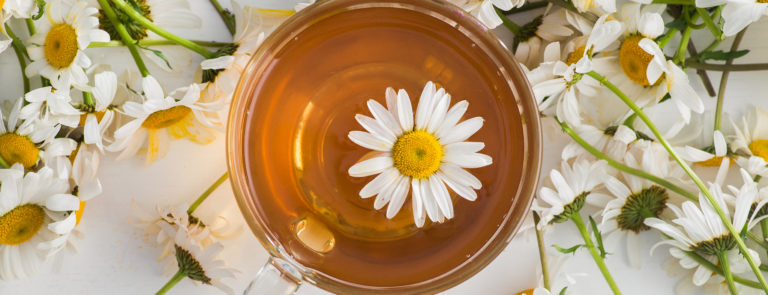Chamomile
MORE THAN A COMMON HERB

Anyone who gardens knows from the start knows that healthy soil is the secret to good gardening! (Chamaemelum Nobilis) is one of those plants that always turns up in conversation when soil maintenance enters the discussion. For those who follow the biodynamic principles of Rudolf Steiner, Chamomile is considered a critical ingredient in biodynamic compost. And yet, while it is considered a common herb, Chamomile is not as common as would hope. It's popular name "Common Chamomile" hardly fits the description. Not only is it not common, but there are also multitudes of varieties and sub-varieties that cannot or should not serve as substitutes for the real thing. Among those lookalikes is Stinking Chamomile, also knowns as Dog Fennel, well named since it smells like an old, wet dog. Because of its decorative and soil-enriching value, true Chamomile is often planted as a cover crop, again in view of its percieved remedial qualities according to biodynamic farming.
What about its culinary uses? Happily, there are many. One of the common folk names for Chamomile is "Little Apple", due to the sweet apple-like scent that distinguishes true Chamomile from all other lookalikes. The affinity to apples is the key to its culinary uses, since tea can be added to apple pies or apples can be infused in it to heighten their flavor. Even the whole flowers can be added to apple pies and tarts for an unusual culinary experience. For this reason, Chamomile can be used to flavor custards and delicate puddings and even cheesecake.
Learn more at The Whole Seed Catalog 2023